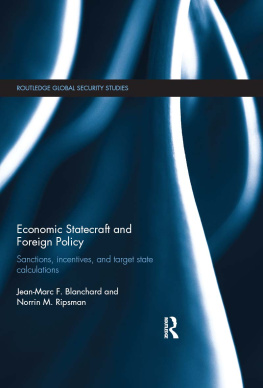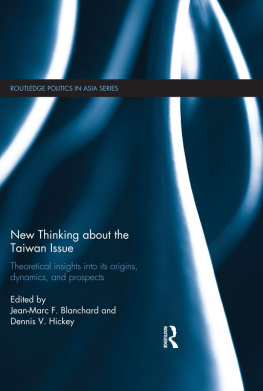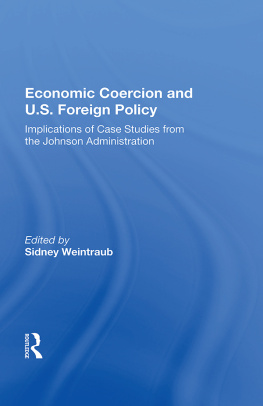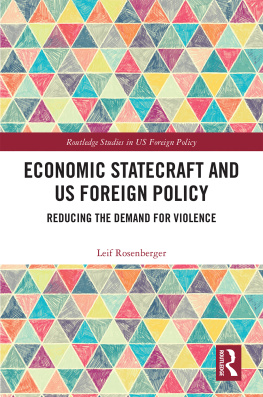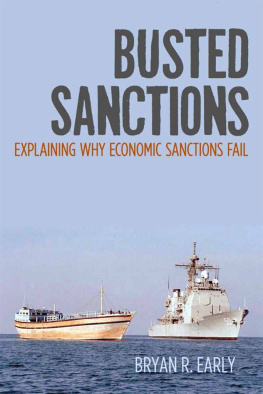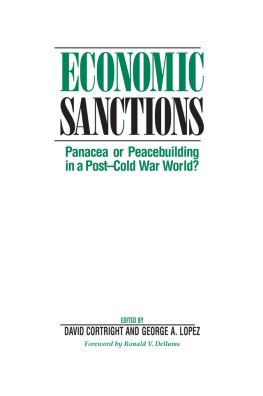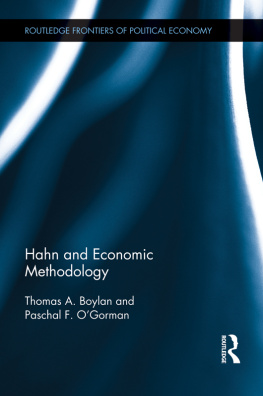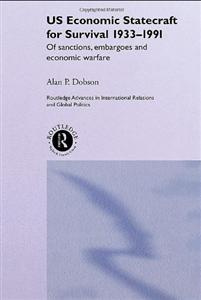Economic Statecraft and Foreign Policy
This book develops a unified theory of economic statecraft to clarify when and how sanctions and incentives can be used effectively to secure meaningful policy concessions.
High-profile applications of economic statecraft have yielded varying degrees of success. The mixed record of economic incentives and economic sanctions in many cases raises important questions. Under what conditions can states modify the behavior of other states by offering them tangible economic rewards or by threatening to disrupt existing economic relations? To what extent does the success of economic statecraft depend on the magnitude of economic penalties and rewards?
In order to answer these questions, this book develops two analytic models: one weighs the threats economic statecraft poses to the Targets Strategic Interests (TSI); while the other (stateness) assesses the degree to which the target state is insulated from domestic political pressures that senders attempt to generate or exploit. Through a series of carefully crafted case studies, including African apartheid and Japanese incentives to obtain the return of the Northern Territories, the authors demonstrate how their model can yield important policy insights in regards to contemporary economic sanctions and incentives cases, such as Iran and North Korea.
This book will be of much interest to students of statecraft, sanctions, diplomacy, foreign policy, and international security in general.
Jean-Marc F. Blanchard is Assistant Dean for International Cooperation and Exchange, Professor, and Executive Director of the Center for the Study of Multinational Corporations with the School of International and Public Affairs at Shanghai Jiaotong University. He is author/editor of five books.
Norrin M. Ripsman is Professor at Concordia University, Montreal, Canada. He is author/editor of six books.
Routledge Global Security Studies
Series Editors: Aaron Karp and Regina Karp
Nuclear Proliferation and International Security
Edited by Morten Bremer Maerli and Sverre Lodgaard
Global Insurgency and the Future of Armed Conflict
Debating fourth-generation warfare
Terry Terriff, Aaron Karp and Regina Karp
Terrorism and Weapons of Mass Destruction
Responding to the challenge
Edited by Ian Bellany
Globalization and WMD Proliferation
Terrorism, transnational networks, and international security
Edited by James A. Russell and Jim J. Wirtz
Power Shifts, Strategy, and War
Declining states and international conflict
Dong Sun Lee
Energy Security and Global Politics
The militarization of resource management
Edited by Daniel Moran and James A. Russell
US Nuclear Weapons Policy after the Cold War
Russians, rogues and domestic division
Nick Ritchie
Security and Post-Conflict Reconstruction
Dealing with fighters in the aftermath of war
Edited Robert Muggah
Network Centric Warfare and Coalition Operations
The new military operating system
Paul T. Mitchell
American Foreign Policy and the Politics of Fear
Threat inflation since 9/11
Edited by A. Trevor Thrall and Jane K. Cramer
Risk, Global Governance and Security
The other war on terror
Yee-Kuang Heng and Kenneth McDonagh
Nuclear Weapons and Cooperative Security in the 21st Century
The new disorder
Stephen J. Cimbala
Political Economy and Grand Strategy
A neoclassical realist view
Mark R. Brawley
Iran and Nuclear Weapons
Protracted conflict and proliferation
Saira Khan
US Strategy in Africa
AFRICOM, terrorism and security challenges
Edited by David J. Francis
Great Powers and Strategic Stability in the 21st Century
Competing visions of world order
Edited by Graeme P. Herd
The Globalisation of NATO
Intervention, security and identity
Veronica M. Kitchen
International Conflict in the Asia-Pacific
Patterns, consequences and management
Jacob Bercovitch and Mikio Oishi
Nuclear Proliferation and International Order
Challenges to the Non-Proliferation Treaty
Edited by Olav Njlstad
Nuclear Disarmament and Non-Proliferation
Towards a nuclear-weapon-free world?
Sverre Lodgaard
Nuclear Energy and Global Governance
Ensuring safety, security and non-proliferation
Trevor Findlay
Unipolarity and World Politics
A theory and its implications
Birthe Hansen
Disarmament Diplomacy and Human Security
Regimes, norms and moral progress in international relations
Denise Garcia
Causes and Consequences of Nuclear Proliferation
Edited by Robert Rauchhaus, Matthew Kroenig and Erik Gartzke
Why Did the United States Invade Iraq?
Edited by Jane K. Cramer and A. Trevor Thrall
Regional Powers and Security Orders
A theoretical framework
Edited by Robert Stewart-Ingersoll and Derrick Frazier
A Perpetual Menace
Nuclear weapons and international order
William Walker
Irans Nuclear Programme
Strategic implications
Joachim Krause
Arms Control and Missile Proliferation in the Middle East
Edited by Bernd Kubbig
The National Politics of Nuclear Power
Economics, security and governance
Benjamin Sovacool and Scott Valentine
Arms Controls in the 21st Century
Between coercion and cooperation
Edited by Oliver Meier and Christopher Daase
Reconceptualising Deterrence
Nudging toward rationality in Middle Eastern rivalries
Elli Lieberman
Psychology, Strategy and Conflict
Perceptions of insecurity in International Relations
Edited by James W. Davis
Nuclear Terrorism and Global Security
The challenge of phasing out highly enriched uranium
Edited by Alan J. Kuperman
Ballistic Missile Defence and US National Security Policy
Normalisation and acceptance after the Cold War
Andrew Futter
Economic Statecraft and Foreign Policy
Sanctions, incentives, and target state calculations
Jean-Marc F. Blanchard and Norrin M. Ripsman

